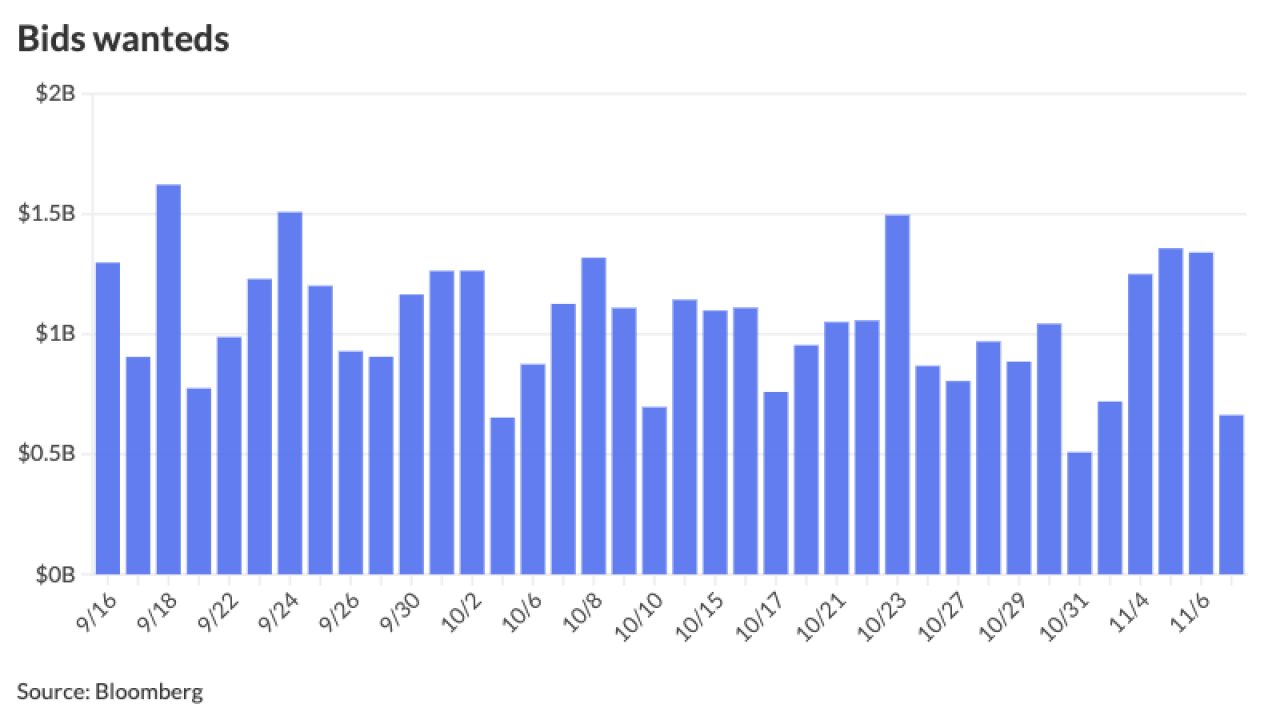The U.S. services sector expanded at a slower pace in October as the non-manufacturing index slid to 60.3 from 61.6 in September, on a seasonally adjusted basis, the Institute for Supply Management reported Monday.
An index reading below 50 signals a slowing economy, while a level above 50 suggests expansion.
Economists polled by IFR Markets had expected a 59.3 level.

The prices paid index slid to 61.7 from 64.2, the 32nd consecutive month prices were growing, the ISM said. The employment index fell to 59.7 from 62.4.
The business activity/production index declined to 62.5 from 65.2, the new orders index was at 61.5, off from 61.6; backlog of orders dropped to 53.5 from 58.5; new export orders remained at 61.0; inventories gained to 56.0 from 54.5; inventory sentiment increased to 62.0 from 59.5; the supplier deliveries index rose to 57.5 from 57.0; and imports fell to 51.0 from 55.0.
Members' general comments on business in the month included:
- “Tariffs are beginning to impact business. We ask our suppliers to hold pricing for six months, but we are experiencing difficulties.” (Construction)
- “Wrapping up fiscal year budgets [and] seeing modest increases in volume and spend. Some price increases due to tariffs on computers/peripherals.” (Finance & Insurance)
- “Stable at the moment. Still continuing to look at opportunities to reduce costs and improve efficiencies.” (Health Care & Social Assistance)
- “The promotional-products trade continues to stay strong going into the end of the year. This reflects the overall macroeconomics of how the economy is doing thus far. We have not yet begun to see the impacts on prices due to the additional tariffs against China. We anticipate that price increases may start to work into the supply chain early in the first quarter.” (Management of Companies & Support Services)
- “It has been very difficult to make decisions due to instability brought by the latest trading dispute. In this environment, clients tend to postpone capital-expenditure decisions.” (Mining)
- “Increasing oil prices should provide an uptick in customer orders for our services in the fourth quarter. Conversely, it will likely lead to higher prices for consumables, specifically bulk chemicals and plastics. Also, hiring is becoming an issue, as finding suitable workers is more difficult as time passes.” (Professional, Scientific & Technical Services)
- “September 30 was the last day of the fiscal year. To close out the year and transition to the new year, activity levels will be different from the usual. Economic growth continues to be high, especially related to construction projects. As such, construction contractors, sub-contractors and labor remain in short supply.” (Public Administration)
- “Business has been strong. Continuing momentum seen in past month. Anticipating continued strong sales through remainder of the year.” (Retail Trade)
- “Transportation capacity shortages remain our largest challenge.” (Wholesale Trade)
- “There was a slight seasonal drop in activity as the school year commenced [because] most orders we placed and received were in the quarter preceding the school year.” (Educational Services)





